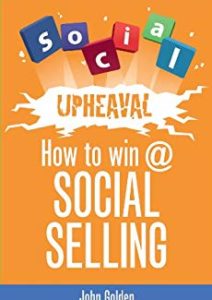The Psychology of Decision Making: How We Choose
Every day, we make thousands of decisions that outline our lives-from smaller ones, such as what to eat for breakfast, to major life-changing ones, involving careers and relationships. But how often have you wondered about the psychological processes behind these choices? Let’s delve into this intriguing world of decision-making psychology and discuss a few key insights that may lead us to the best choice.
1. The Seven Steps of Effective Decision-Making
First, it helps to realize that there is a methodical process for decision-making. There are seven steps to effective decision-making according to SNHU:
1. Identify the Decision
2. Gather Information
3. Identify Prospective Alternatives
4. Weigh the Evidence
5. Choose an Alternative
6. Take Action
7. Review
This framework therefore gives an orderly course to follow through on all important decisions. Considering these steps in approaching a decision focuses attention on being more systematic and thoughtful in reaching a decision.
2. The Power of Intuition
While logical thinking is needed, intuition should not be scorned either. Research has proved that gut feelings can be a strong helper in many situations, particularly when fast judgments about people or situations are involved. Indeed, it was proved by research that people who listened to their gut feelings could predict more precisely and make more veracious judgments in conditions of poor information.
That doesn’t mean that we must always follow our intuition. It does mean we should at least attempt to balance our gut feelings against our more critical thinking and analysis. Combining intuitive and analytical skills allows us to make better decisions.
3. Overcoming Choice Overload
The abundance of choice we are faced with in today’s world will often lead to what can only be described as choice overload. What this entails is having too many options; this reaps anxiety, self-doubt, and dissatisfaction. What is even more interesting is that studies have been able to show that fewer options can lead to superior satisfaction and decision-making outcomes.
But to balance that choice overload, try to narrow choices or adopt strategies that make complex decisions simpler. This would prevent decision paralysis and thus help in feeling more satisfied with one’s choices.
4. Avoiding Pitfalls in Decision Making
A number of psychological biases influence the way we make choices. Understanding these can better our choices:
a) Fallacy of Sunk Costs: The tendency to invest time or other resources into something because so much has already been invested, even when continuing no longer benefits us. That is, one should feel free to change course whenever a decision no longer serves.
b) We have a decision where we look at the plus side and overlook the potential downside. Be sure to weigh both pros and cons when considering an option.
c) At times we make decisions based on our immediate, emotional state or mood. Even if just for a week, distance yourself from your decision; consider going back in your journal for the big picture.
5. Understanding Prospect Theory
Prospect Theory, developed by Nobel Prize winner Daniel Kahneman, helps explain various strategies in making human decisions between alternatives that involve gains versus losses. The three major messages of prospect theory are as follows:
We feel worse about a loss than an equivalent gain.
The pain of larger losses and the pleasure from greater gains are less than one would normally expect.
Individuals will take more risks to avoid a loss than to make a gain.
Such knowledge of tendencies should allow for more balanced decisions, whether it be financial choices or risk-related judgments.
6. Context and Environment Matter
Decision-making is less an affair of personal conscience but rather is tied to environment and context. Organizations can promote high-quality decision-making by creating settings in which individuals feel safe to offer diverse perspectives and challenge ineffective practices.
7. Continuous Improvement
Finally, don’t forget decision-making is an ever-evolving skill. We develop our skill in decision-making by reflecting on past decisions, learning from successes and failures, and keeping ourselves open to new information and perspectives.
Psychology about our choices, in the final analysis, imparts in us the skill to decide more effectively. Integrating structured approaches, intuition, awareness of biases, and a context for our decisions will give us added confidence in ourselves and effectiveness at navigating life’s choices. Keep in mind that every decision is an opportunity to learn and grow, so enjoy the process and trust yourself that whatever you choose will be wise.













Comments